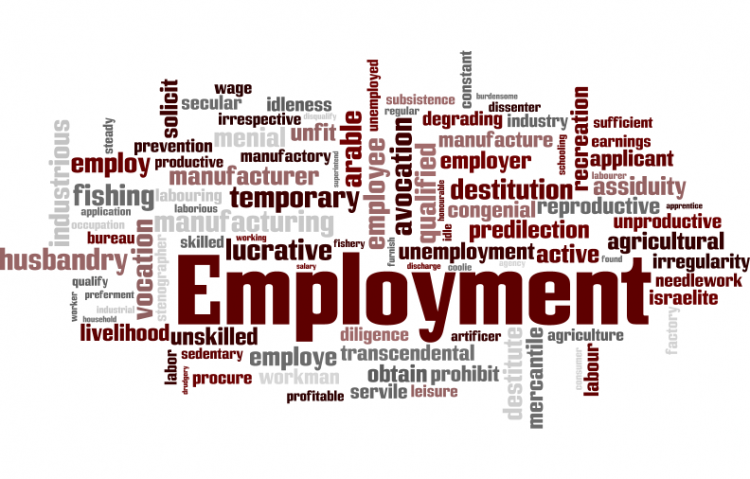
- Target:
- People who struggle in school
- Region:
- GLOBAL
In developed nations up to 14% of economically engaged people with disability run their own business or are self employed. As opposed to only 8% of economically engaged non disabled people.
US and worldwide studies of working age people with disabilities show consistent & continuing patterns of unemployment for these individuals, as compared to their non-disabled working peers.
The UN Millennium Development Goals Report indicates the unemployment rate for people with disabilities as high as 90% in some of the world’s developing countries. Globally, there are over 750 million persons with disabilities, and around a third of these are people between the ages of 18-30.
According to the UN World Program Action for Youth, nearly 80% of young adults with disabilities live in developing countries forming a significant proportion of the youth population in every society. Despite being the world’s largest minority, appropriate employment and educational programs for persons with disabilities of any age are largely ignored. People with disabilities are amongst the most marginalized and poorest of the world’s adults. Adult education related to starting a business or improving chances for meaningful employment is even more critical for realizing the full potential of adults with disabilities than it is for their peers.
More than 98% of people with disabilities of any age in developing countries do not attend school. Not receiving skills and qualifications to function in the wider society, limits the employment opportunities for PwDs. Unemployment rates for persons with disabilities are higher than the non-disabled population in every society and discrimination and negative perceptions pose a formidable barrier to otherwise capable people considered to be disabled looking for employment.
The US Bureau of Labor Statistics provides monthly updates on employment for members of the workforce who have disabilities. These data have been available to the public since October 2008 and have helped confirm what has long been assumed or suspected- labor market participation for PwD is extremely low. Over the past year, active workforce participation hovers consistently around 22%, 77% of people with self-disclosed limitations to major life activities are “not in the workforce and unemployment rates are currently an unacceptable 50% higher than those workers without disabilities.
Is this really the best we can do?
As one can see, unemployment levels for workers without disabilities has held steady around 9%, while for people with disabilities there have been wide fluctuations ranging as high as 17% to just under 14%. Combine these dismal numbers with only 1 in 5 PwD working in either part of full time employment, and the conclusion is America has a long way to go to reach meaningful workforce participation rates among US citizens identified as having conditions of disability.
Deep cutbacks in public and government funding have seen a reduction and elimination of grants, loans, and vendor contracting sources that served as employment-generators, business incubators, and direct services for people with disabilities.
The overall inability of the government and business communities to provide seed or sustaining funding continues to limit traditional avenues to job placement, self-employment, and start up entrepreneurial businesses for all sectors and classes of workers- especially those with barriers to employment due to disability.
Despite the demise of many exemplary programs, there are some continuing regional efforts to address employment inclusion and self-employment for people with disabilities such as the US Chamber of Commerce for Persons with Disabilities and internationally through organizations such as Leonard Cheshire Disability International.
Recently, more attention is being directed at improving employment activities and public awareness coordinated by federal interagency and community-based organizations through advertising/marketing campaigns such as “What Can You Do?” and “Think Beyond the Label.” In the public sector, the Obama administration’s stated policy position seeks to have the federal government set a leadership example by hiring 100,000 new federal employees with disabilities.
The US Business Leadership Network (USBLN) has been a committed partner in making convincing business cases for hiring qualified applicants with disabilities, establishing a national footprint of disability-confident employers, and recently set up a supplier diversity program for entrepreneurs with disabilities to become recognized as nationally certified disability-owned business.
While encouraging, these nascent efforts could be leveraged further through the development of a Global Network for Entrepreneurs with Disabilities. People with disabilities cannot and should not wait for government intervention to comprehensively implement disability and inclusive business development policy and practice.
The Global Network for Entrepreneurs with Disabilities is a newly formed organization which recognizes that is it within our capabilities to initiate a call to action- to challenge and change international policy, practice, and participation of disabled people in developing and building their own successful businesses.
My goal is to ultimately create an option for people who struggle in school which would a be career auditioning system, where people who are capable but either have a hard time showing what they are made of or can't, can do so by auditioning in front of professionals of the field.
The main requirements for auditioning is to provide as much as you can for the career you are auditioning for. If the auditionee can not provide what ever it is he or she needs. Than he or she may request it to the committee, which will also be needed.
If the auditionee wishes it it can be set up so that the one auditioning can do so in front of a how ever many or little audience members as he or she chooses. this would be town by town at least to start with.
You can further help this campaign by sponsoring it
The Support students who struggle in school to find employment petition to People who struggle in school was written by SeanSullivan and is in the category Employment at GoPetition.